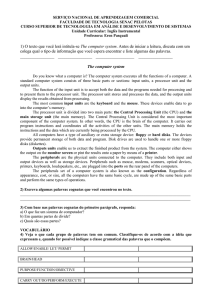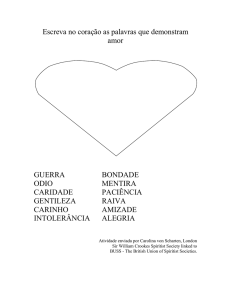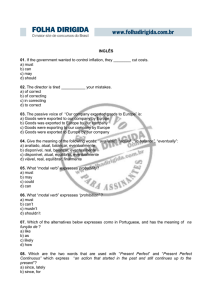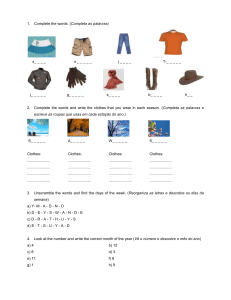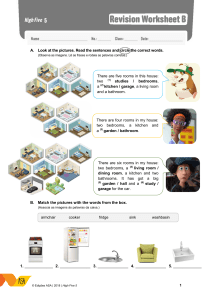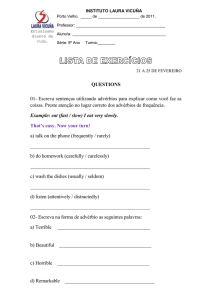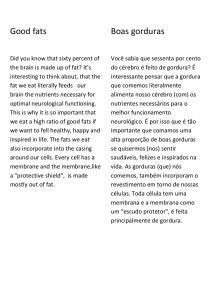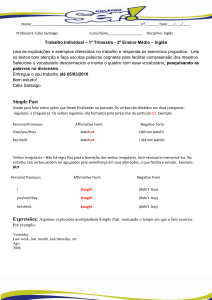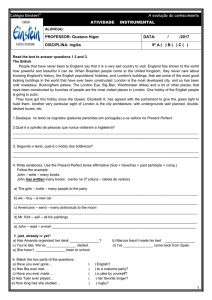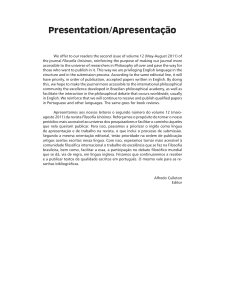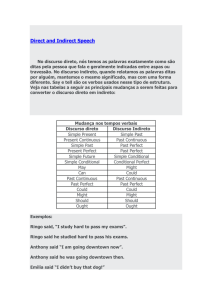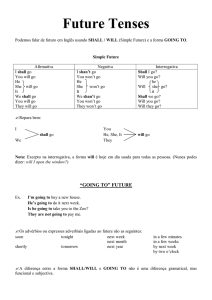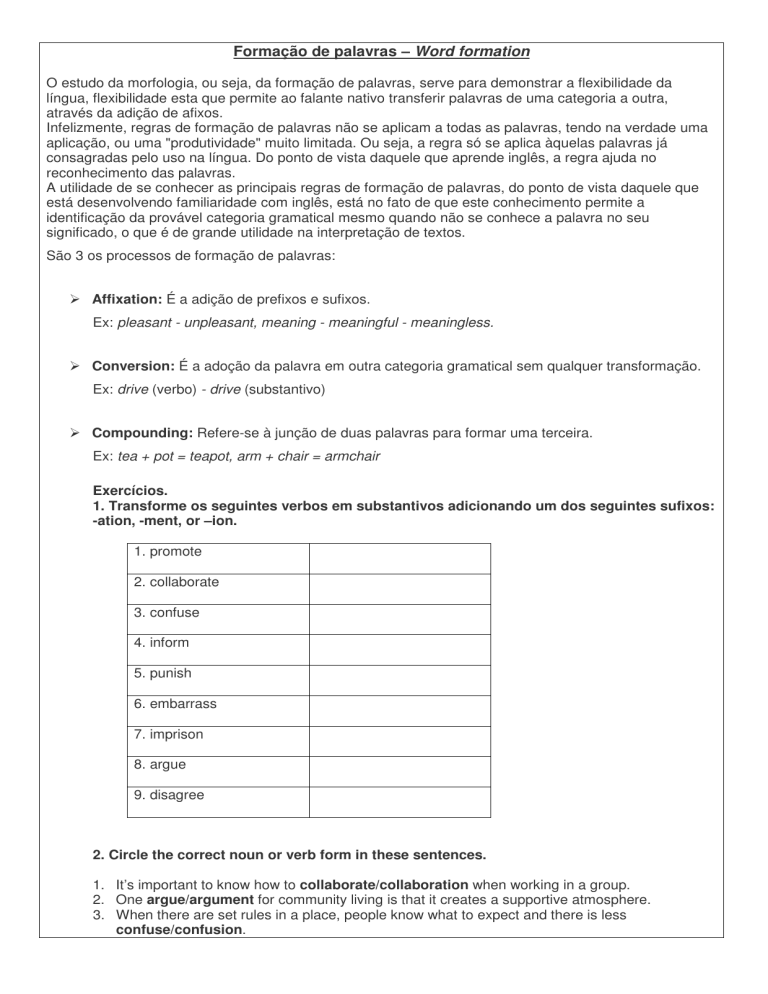
Formação de palavras – Word formation
O estudo da morfologia, ou seja, da formação de palavras, serve para demonstrar a flexibilidade da
língua, flexibilidade esta que permite ao falante nativo transferir palavras de uma categoria a outra,
através da adição de afixos.
Infelizmente, regras de formação de palavras não se aplicam a todas as palavras, tendo na verdade uma
aplicação, ou uma "produtividade" muito limitada. Ou seja, a regra só se aplica àquelas palavras já
consagradas pelo uso na língua. Do ponto de vista daquele que aprende inglês, a regra ajuda no
reconhecimento das palavras.
A utilidade de se conhecer as principais regras de formação de palavras, do ponto de vista daquele que
está desenvolvendo familiaridade com inglês, está no fato de que este conhecimento permite a
identificação da provável categoria gramatical mesmo quando não se conhece a palavra no seu
significado, o que é de grande utilidade na interpretação de textos.
São 3 os processos de formação de palavras:
Affixation: É a adição de prefixos e sufixos.
Ex: pleasant - unpleasant, meaning - meaningful - meaningless.
Conversion: É a adoção da palavra em outra categoria gramatical sem qualquer transformação.
Ex: drive (verbo) - drive (substantivo)
Compounding: Refere-se à junção de duas palavras para formar uma terceira.
Ex: tea + pot = teapot, arm + chair = armchair
Exercícios.
1. Transforme os seguintes verbos em substantivos adicionando um dos seguintes sufixos:
-ation, -ment, or –ion.
1. promote
2. collaborate
3. confuse
4. inform
5. punish
6. embarrass
7. imprison
8. argue
9. disagree
2. Circle the correct noun or verb form in these sentences.
1. It’s important to know how to collaborate/collaboration when working in a group.
2. One argue/argument for community living is that it creates a supportive atmosphere.
3. When there are set rules in a place, people know what to expect and there is less
confuse/confusion.
4.
5.
6.
7.
8.
It is unfair not to punish/punishment cheating.
Promote/promotion should dependend on experience.
The threat of embarrass/embarrassment is enough to discourage people from braking rules.
Imprison/imprisonment is not an effective form of discipline.
To be fair, every community has to inform/information all of its members of the rules.
3. Write the negative form of the following words by adding one of the following prefixes:
anti; non; miss; counter; im; dis; un or ir.
1.
2.
3.
4.
____ possible
____ paid
____ sense
____ placed
5. ____ rational
6. ____ regard
7. ____ clockwise
8. ____ social
4. Complete the sentences with the negative form of the word in brackets.
1. Many people were ________________ (sure) English Town would succeed in improving
language levels.
2. Some people think English Town was ____________ (conceive), but others
________________ (agree) that it was a bad idea.
3. There are many _________________ (profit) organizations you can volunteer for.
4. Some people are ___________________ (regular) volunteers because they have other
commitments, like study or work.
5. You have to be ____________________ (selfish) if you volunteer to work with children or the
elderly.
5. Complete the chart with the missing words.
Verb
1. Amaze
2.
3.
4. Create
5.
6.
7.
8.
9. Offend
10.
11. Rely
Noun
Adjective
Success
comfortable
fascination
imaginary
Irritation
protective
6. Complete the sentences with the correct form of the words in brackets.
a) Julian is so _________________! I really don’t know how he can write those
poems. (create)
b) My mother was always _________________ when I was a kid. I don’t know if this
was good to my identity. (protection)
c) Look at those birds in the sky! Don’t you think they are__________________
(amaze)
d) I really get ___________________ when people keep asking me if I will marry one
day. (irritate)
e) James is a very __________________ person. You can count on him at any time.
(rely)
f) This book is simply _____________________. I can’t stop reading it! (fascination)
g) I think cinema chairs must be as ___________________ as possible because you
to sit there for a long time.(comfort)

